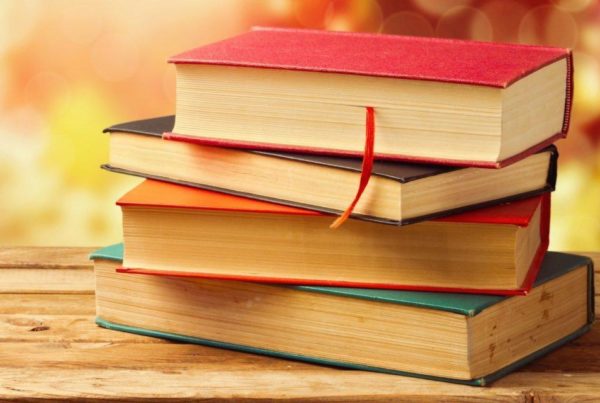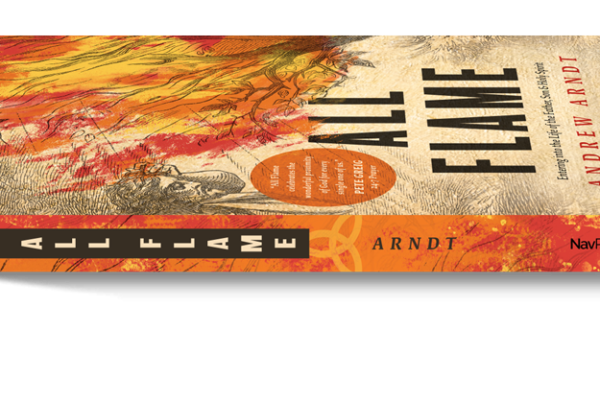Well, here we are approaching the end of another year. And that means, among other things, the annual recap of all I read last year, along with my favorites in each category. Some “noticings” (as my friend Marilyn McEntyre would put it):
1) I’m in the midst of a doctoral level creative writing program at Western Theological Seminary which has us focusing by and large on novels, memoirs, and poetry. My list reflects this. More of those than the normal year; fewer heavy theological or historical books; fewer of the kinds of “light reading” books that have often graced the list (e.g., Barbara Walters last year); and fewer still of what I’ve sometimes called “practical” or life-skills type books.
2) I read a bit less overall this year than I have in previous years. I know you’ll think that’s ridiculous (86 books newly read or re-read ain’t bad), but it felt and in fact was less. Some of that is the product of pastoring a young and growing congregation. Some of that is a product of having three teenagers in the house. Some is a product of launching one book (Streams in the Wasteland) and diving deep into the writing of another (for my doctoral program). And some is a genuine – truly genuine – effort I made to slow down, absorb more, and catalogue more thoroughly what I read. In fact, as part of that effort, with a good many of the books I read this year, the moment I finished them, I started reading them again–which I think is a great practice. Often, after the first reading, you’ve only just gotten the gist of the book. A second read right afterwards can really deepen your grasp of the book, as well as enable you to catch all the things you missed the first time around. Did it help? I think so. I think…
Nevertheless, I remind myself often–and will take this opportunity to remind you–that reading isn’t just about “retaining” all the information you gather in the pages. A great deal of it is purely about formation–what encountering new ideas or grappling with complex characters and storylines or pondering a line or two of good poetry does to your mind and heart. You may not be able to “quantify” it–but it has surely changed you.
An analogy here that I think is helpful here is exercise. I don’t remember every workout from this past year. But the discipline of hitting the gym or heading out on a run five days a week–and making it a goal with each workout to push a little harder and do a little better–is helping me maintain health and strength, as well as poising me to have better workouts this year.
You get the idea. Keep reading. Keep reading what you love. Keep reading things that stretch you to grow your mind and heart… and you’ll be better for it.
Anyway, without further ado… my top reads of 2022:
FAVORITE NOVEL
This one is almost unspeakably difficult, because I read so many that knocked my socks off, from Toni Morrison’s Beloved (gut-wrenching) to Arundhati Roy’s The God of Small Things (ditto) to Brian Doyle’s Mink River (like a lullaby) and so much more. But the one that captured my fascination the most was surely John Steinbeck’s East of Eden. I was moved and undone by this masterfully told story of a family across generations. East of Eden is a deep exploration of how sin embeds itself in family patterns, and whether or not we have any say in the matter of how our lives turn out. Incredible, rich characters, and penetrating psychological and theological insight. I’ll be coming back to this one.
FAVORITE MEMOIR
I read a few that were really good this year, including Shulem Deen’s All Who Go Do Not Return–a riveting account of Deen’s exodus from the Hasidic Judaism of his upbringing. But I think my winner here has to be Joan Didion’s The Year of Magical Thinking. Didion was one of the most beloved American writers of the latter 20th century. Some months after her husband died of a heart attack on December 30th, 2003 (while their daughter Quintana was in ICU), Didion began writing this book, which later won the Pulitzer–a heartrending account of the her attempt to cope with the tragedy that was suddenly hers. She writes, “Mourning, the act of dealing with grief, required attention” (p. 143)–and Year is precisely that: an inside look at her journey to attend to her own grief. If you like memoir, you’ll love this one.
FAVORITE BOOK OF POETRY
I’ve become a bit of a poetry nut over the years. I read a little every morning and sometimes before bed. A good line will linger in my ears for days and I think makes me a better writer. So I’m always hungry for fresh verse…
Looking back, while I did spend a lot of time this year re-reading stuff I’ve fallen in love with over the past few years (R.S. Thomas, Rilke, and Mary Oliver), there were a couple new voices. Margaret Atwood’s Dearly was really fun (she’s got a way of tucking a little surprise in at the end of her poems that helps make them really memorable) but my favorite was Mary Karr’s Sinners Welcome. Karr, who converted to Christianity late in life, has been at it a long time, and I think what struck me the most about her poetry was (a) the vividness of her language and (b) her absolute unwillingness to pull any punches. You’re going to find grace in these lines – but it ain’t gonna come cheap, not if the cross is the measure of the beauty and grace of God. Not an ounce of sentimentalizing in these lines.
FAVORITE BOOK ON WRITING
I’m a huge sucker for good books on writing, and try to read a few every year. Late in the year I read a nice little volume of C.S. Lewis’ which I’d highly recommend, but the honor of “favorite” surely goes to Verlyn Klinkenborg’s (what a name, right?) Several Short Sentences About Writing. This one, for me, will rank right up there with the best books on writing I’ve ever read (next to Strunk and White, Zinnser, and Dillard) and earns that place not just for its depth of insight but also for its wild originality. No chapters. No discernible sections or subsections. Just one long meditation on the craft that instructs by showing as much as by telling. If you a writer, or just like good writing, you’ll love this one.
FAVORITE HISTORICAL BOOK
When I was working on my MDiv at Trinity Evangelical Divinity School years ago, I had the privilege of taking a class on church history with Dr. Scott Manetsch, whose lectures I absolutely loved. Manetsch renders worlds that are warm and vivid without losing detail. I was thrilled, therefore, when I saw that several years ago he had released a book on Calvin’s Geneva–a massive research project looking at Calvin’s vision of church life in Geneva and how it worked out in practice. Calvin’s Company of Pastors is as deep as it is broad, and renders a picture of Calvin that is as close to the actual data as you’re likely to find–a Calvin who is neither demonized or divinized, but a real (genuine, if flawed) pastor tasked with pastoring pastors in a tumultuous time. Tons for modern ministers to glean from this (including a fantastic chapter on how Calvin and his fellow pastors leveraged the power of the office of church discipline to bring about social justice in Geneva). Highly recommended.
FAVORITE THEOLOGICAL BOOK
This one was hard. Earlier in the year, a friend recommended I read Robert Farrar Capon’s book on the parables of Jesus which blew my mind on so many fronts (changing forever not only how I’ll look at the parables but also solidifying some thoughts on the divine exercise of power). I also finally got around to reading John Barclay’s groundbreaking Paul and the Gift (which likewise changed forever the way I understand how the notions of “grace” and “gift” operate in the letters of Paul).
But the award here goes to Aristotle Papanikolaou’s The Mystical as Political: Democracy and Non-Radical Orthodoxy, a fascinating argument for why a society like ours–one that, among other things, not only permits but celebrates freedom of religion–is the kind of society we should hope for given the fact that we believe that our God both finally wins the world by non-coercive love and also frames our own holiness as creatures called to union with God in precisely those terms (i.e., non-coercive love for “others”). This is a book I’ll be thinking about for a long time, as it gave me not only a new appreciation for the genius of America as a social and political experiment but also helped me connect new and deeper dots with my own understandings of the life of holiness. Tough read–but again, highly recommended (esp. if you’re looking for a thoughtful counterpoint to the writings of folks like Milbank, Hauerwas, Cavanaugh, and others).
FAVORITE BOOK OF CULTURAL ANALYSIS
Another close one here. On the recommendation of a friend, earlier this year I read and absolutely loved Robert Putnam’s The Upswing: How America Came Together a Century Ago and How We Can Do It Again–a close look at how during the Great Depression and Great Wars a spirit of community and solidarity began to prevail in America (which had measurable results), and how, in the years following the cultural revolution of the 60s and 70s that spirit has slowly fractured into the fissiparous America we know today. Brilliant insights. I’ll be re-reading soon.
But the award in this category goes to Michael Bullivant’s Nonverts: The Making of Ex-Christian America. Bullivant traces the rise of religious disaffiliation across Mormons, Mainline Protestants, Evangelicals, and Catholics over the last 60 years and offers a really helpful hypothesis on why we’ve seen such a spike in recent years. The book is full of quantitative (numbers) and qualitative (stories) analysis, and Bullivant combines keen insight with a good sense of humor and a ready pen. More than that–I found the book helpful for thinking about what it might mean to be the church in an era where we are losing our cultural foothold (and found myself putting those thoughts in conversation with what I learned from Papanikolaou). Great read.
Well. That does it. Full list below.
Cheers to the reading life!
Andrew
—
2022 Reading List
NEW
- St. Thomas Aquinas (Chesterton)
- East of Eden (John Steinbeck)
- The Scandal of the Incarnation (Irenaeus; selected with commentary by Hans Urs Von Balthasar)
- Redeeming Love (Francine Rivers)
- The Upswing (Robert Putnam)
- All Who Go Do Not Return (Shulem Deen)
- God Laughs and Plays (David James Duncan)
- The Year of Magical Thinking (Joan Didion)
- The God of Small Things (Arandhati Roy)
- The Resilient Pastor (Glenn Packiam)
- The Way of the Dragon or the Way of the Lamb (Jamin Goggins and Kyle Strobel)
- Speaking Peace in a Climate of Conflict (Marilynne McIntyre)
- Fidelity (Wendell Berry)
- The Spiritual World of St. Isaac the Syrian (Hilarion Alfeyev)
- Letters to a Young Poet (Rainer Maria Rilke)
- The Sound of Mountain Water (Wallace Stegner)
- Beloved (Toni Morrison)
- Plainsong (Kent Haruf)
- The Source of Self-Regard (Toni Morrison)
- The Gift of Therapy (Irvin Yalom)
- Mystery and Manners (Flannery O’Connor)
- Letters to a Young Pastor (Eric and Eugene Peterson)
- The Apostles Creed: A Guide to the Ancient Catechism (Ben Myers)
- The Five Masculine Instincts (Chase Replogle)
- Eventide (Kent Haruf)
- Piranesi (Susanna Clarke)
- Me, Myself, and Bob (Phil Vischer)
- Gentle and Lowly (Dane Ortlund)
- Three Hours: Sermons for Good Friday (Fleming Rutledge)
- God For Us (Catherine LaCugna)
- The River Why (David James Duncan)
- Confronting Christianity (Rebecca McLaughlin)
- Our Souls at Night (Kent Haruf)
- Deacon King Kong (James McBride)
- Kingdom, Grace, Judgement: Paradox, Outrage, and Vindication in the Parables of Jesus (Robert Farrar Capon)
- The Catcher in the Rye (JD Salinger)
- Mink River (Brian Doyle)
- Tolkien and CS Lewis: the Gift of Friendship (Colin Duriez)
- Finally Comes the Poet: Daring Speech for Proclamation (Walter Brueggemann)
- The Foolishness of Preaching (Robert Farrar Capon)
- Jane Eyre (Charlotte Bronte)
- Benediction (Kent Haruf)
- Calvin’s Company of Pastors (Scott Manetsch)
- The Power of Attachment (Diane Poole Heller)
- Richard III (William Shakespeare)
- The Wasteland and Other Poems (TS Eliot)
- William Wordsworth, Favorite Poems (Dover Thrift)
- Dearly: New Poems (Margaret Atwood)
- Narratives of a Vulnerable God (William Placher)
- The Domestication of Transcendence (William Placher)
- 10 Questions Every Teen Should Ask (and Answer) About Christianity (Rebecca McLaughlin)
- A Domestic Monastery (Ronald Rolheiser)
- Several Short Sentences About Writing (Verlyn Klinkenborg)
- God and Evil in the Theology of St. Thomas Aquinas (Herbert McCabe)
- Celebrities for Jesus (Katelyn Beaty)
- The Art of Memoir (Mary Karr)
- The Master and Margarita (Mikhail Bulgakov)
- Paul and the Gift (John Barclay)
- Prayers of the Cosmos (Neil Douglas-Klotz)
- The Whole Church: Women, Leadership, The Church, and Why It All Matters (Eilta Friesen and Chris Price)
- Living Jesus (Luke Timothy Johnson)
- The Mystical as Political (Aristotle Papanikolaou)
- Born Standing Up (Steve Martin)
- Confessions of a Twentieth Century Pilgrim (Malcom Muggeridge)
- Sinners Welcome (Poems by Mary Karr)
- The Cost of Control (Sharon Hodde Miller)
- A Course on Christian Mysticism (Thomas Merton, ed. by John Sweeney)
- Everything Sad is Untrue (Daniel Nayeri)
- Nonverts: The Making of Ex-Christian America (Stephen Bullivant)
- Experiencing the Trinity (Darrell Johnson)
- Two Hundred Chapters on Theology (St. Maximus the Confessor)
- Lifespan: Why We Age and Why We Don’t Have To (David Sinclair)
- The Intentional Year (Holly and Glenn Packiam)
REREAD
- On the Unity of Christ (St. Cyril of Alexandria)
- Jesus in the Trinity (Lincoln Harvey)
- Lila (Marilynne Robinson)
- Systematic Theology Vol 2 (Katherine Sonderegger)
- Peace like a River (Leif Enger)
- On Writing (Stephen King)
- The Book of Pastoral Rule (Gregory the Great)
- Being Christian (Rowan Williams)
- Christ the Key (Kathryn Tanner)
- Sacred Fire (Ronald Rolheiser)
- Notes from Underground (Fyodor Dostoevsky)
- The Year of Magical Thinking (Joan Didion)
- For the Time Being (WH Auden)




